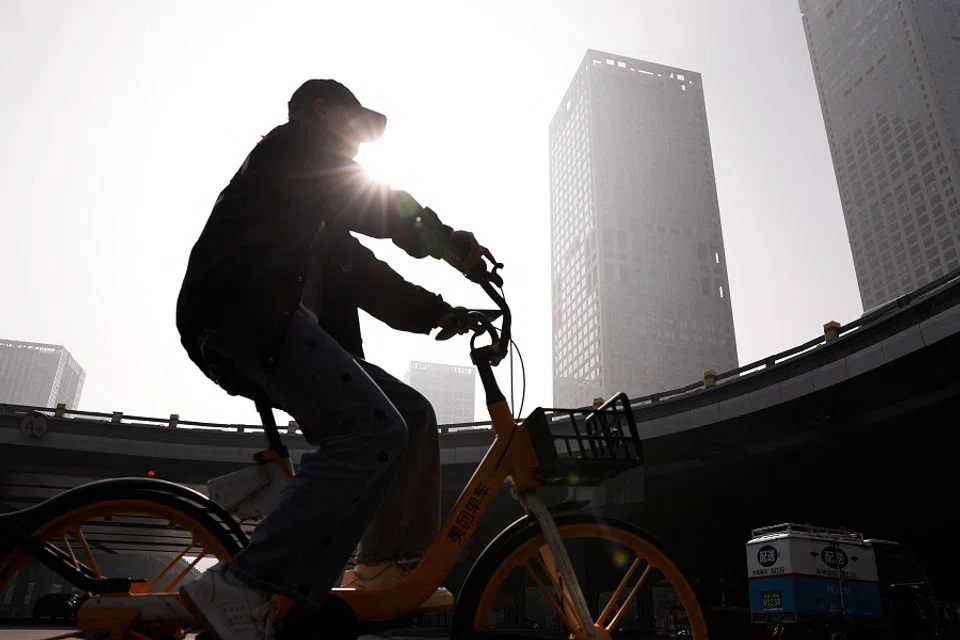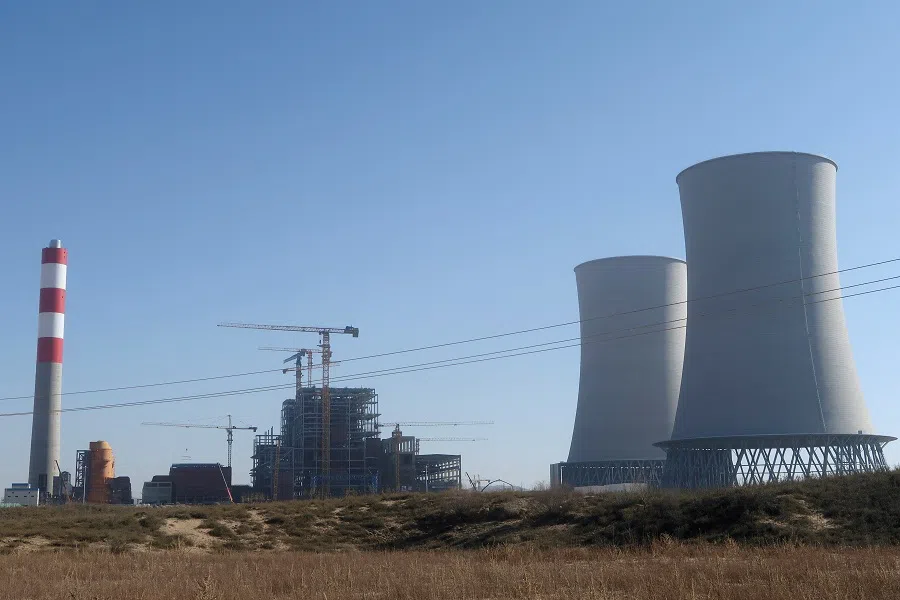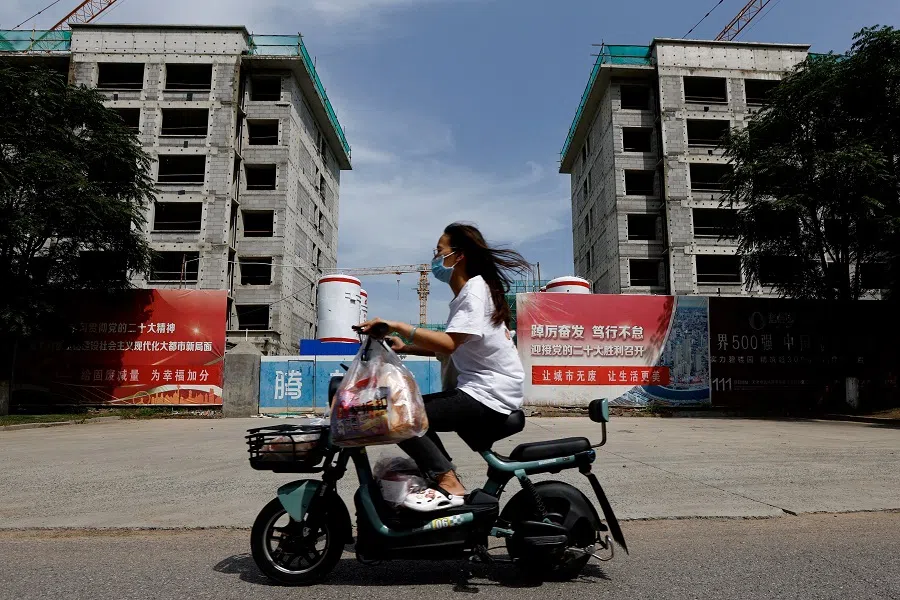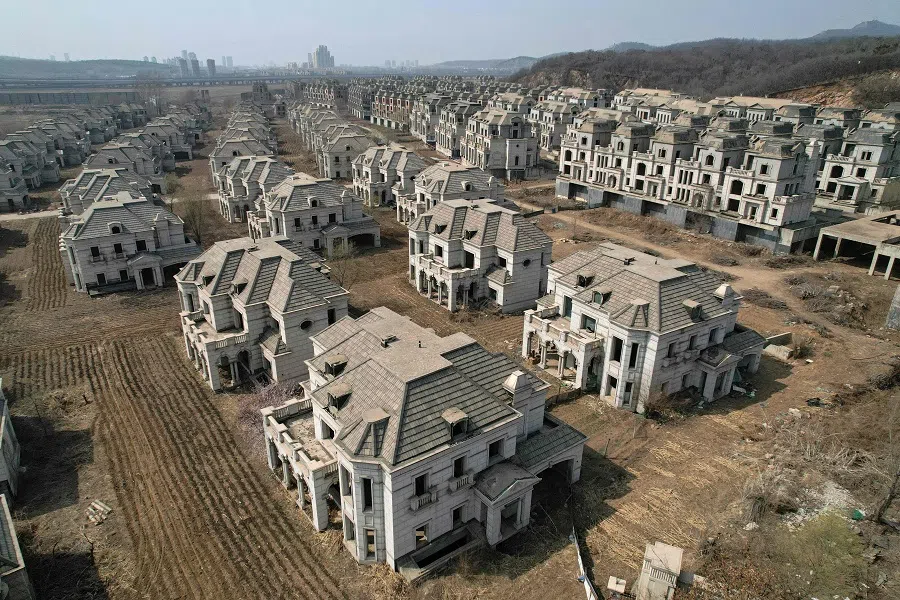China to back down from extreme measures for economic stability
The Central Economic Work Conference held earlier this week has set the tone for China's economic development next year, with the aim of establishing the new before abolishing the old, essentially ensuring stable growth across all sectors. But what remains is whether these slogans and calls can turn into practical action and change. Lianhe Zaobao correspondent Chen Jing tells us more.

Two economic meetings were held in China recently - the Politburo meeting last week and the Central Economic Work Conference (CEWC) this week. The most-discussed topic was the tone set for next year's economic policies, i.e. "seeking progress while maintaining stability, promoting stability through advancement, and establishing the new before abolishing the old".
Timing to transit from old to new
While the CEWC of the past two years emphasised "stability first" and "seeking progress while maintaining stability", this year the focus is on "seeking progress while maintaining stability, promoting stability through advancement, and establishing the new before abolishing the old".
"Promoting stability through advancement" is easy enough to understand - it means addressing stability issues through development. So then, what does "establishing the new before abolishing the old" mean?
The phrase "establishing the new before abolishing the old" is not new; it was mostly used to set the tone for carbon emissions reduction work in the past.
For example, the Politburo meeting held in July 2021 proposed "rectifying 'campaign-style' carbon reduction and establishing the new before abolishing the old". The CEWC held later that year also stated, "In adjusting policies and promoting reform, we must have a good grasp of timing, extent and effectiveness, and adhere to establishing [the new] before breaking [the old], standing firmly and fighting steadily."
They predict that the existing model will still operate for a period of time until the new mechanism is properly established.

During the Two Sessions (the annual meetings of the National People's Congress and the Chinese People's Political Consultative Conference) in 2022, Chinese President Xi Jinping stressed at the deliberation session of the Inner Mongolia delegation that green development is not something that happens overnight and that there is a need to "establish the new before abolishing the old, not to abolish the old before establishing the new".
Although "establishing the new before abolishing the old" is not a new concept, the fact that it was mentioned as part of the general tone for next year's economic work this year shows that it has been broadened to include the economy as a whole. While the CEWC did not give further explanations, analysts are pretty much on the same page.
The chief economist team at Minsheng Bank interpreted in an article that, on top of energy structure, fields involved in "establishing" and "abolishing" also include new and old economic drivers and the real estate development model. They predict that the existing model will still operate for a period of time until the new mechanism is properly established.
Industries hurt by across the board industry restructuring
Luo Zhiheng, chief macroeconomic analyst of Yuekai Securities Research Institute, believes that China was in fact "establishing the new before abolishing the old" when it was "crossing the river by feeling the stones" and progressively pushing out pilot zones during the process of reform and opening up. This model is especially critical for China's economy in the period of transition between new and old economic drivers.
Meanwhile, Xu Gao, chief economist at BOC International (China), pointed out that the Politburo meeting has set "establishing the new before abolishing the old" as the general tone for policies to rectify the problems in the transition between China's new and old economic drivers, especially the real estate sector, which has been excessively "broken" since 2021.
These areas that underwent "abolishing the old before establishing the new" were once key drivers of fast economic growth, but have now become hindrances to economic recovery and could even be hidden risks that threaten the stability of the system.

Despite the government's introduction of policies to restore the ailing property market throughout the year, the real estate industry has long been caught in a vicious cycle due to the pressure of the "three red lines" policy, which has continued to bring forth the pressure of "abolishing".
By that logic, aside from the real estate market, the "abolishing" done over the past few years also includes the worsening local finances due to the failure of the debt financing model, the revamping of internet firms to "prevent the disorderly expansion of capital", as well as the education and training industry that was hit hard by the "double reduction" policy.
Some fell into a rut because of the unsustainability of their original development model, and are still experiencing the pangs of a transitional phase, while others are in urgent need of a restructuring after years of wild, unguided development. But before establishing a healthy development model, their momentum was seriously impacted by industry restructuring across the board.
These areas that underwent "abolishing the old before establishing the new" were once key drivers of fast economic growth, but have now become hindrances to economic recovery and could even be hidden risks that threaten the stability of the system.
The CEWC highlighted the need to prevent and defuse risks related to the real estate sector, local government debt, and small and medium-sized financial institutions among other key sectors as areas of focus for economic work next year. The concept of "establishing the new before abolishing the old" is perhaps an approach to help mitigate these hidden risks.

Take for example the real estate sector, which the market is most focused on. This year's conference no longer stressed "houses are for living in, not speculation", "support real needs and needs from households looking to change or upgrade from their current homes", or other calls that went against the original development model.
Instead, it emphasised that "active and prudent efforts should be made to defuse risks in the property sector" and that "the reasonable financing needs of real estate enterprises of different ownerships should be met equally". This clearly delineates that mitigating risks is a top priority for the real estate sector.
... the issue of how to reduce the shock and impact that arises from change as well as how to stabilise and actualise the industrial shift and upgrading would certainly be a challenge...
Taking it one step at a time
The conference also placed "improving basic systems" ahead of "accelerating the building of a new development model for the real estate sector", suggesting the need to set up a basic system for the real estate sector before gradually building the new model.
As China's economy transitions from a period of rapid growth to a period of high-quality development, the driver for growth would gradually switch from investment to consumption, and from the traditional manufacturing industry to the high-tech industry. The real estate sector would undergo a major reshuffle, and local governments would also need to move away from a finance model reliant on land revenue.
These series of changes would not happen overnight, and while breaking free from the current development models, the issue of how to reduce the shock and impact that arises from change as well as how to stabilise and actualise the industrial shift and upgrading would certainly be a challenge facing the policymakers in the next year and beyond.

After going through three years of major changes due to the pandemic, businesses are hoping for even clearer policy guidance, while investors are hoping for an even more stable business environment. If the concept of "establishing the new before abolishing the old" can be implemented into practical policies, it would most likely help enhance private business sentiment and ease market concerns.
However, regarding what is to be "established" before "abolishing", and how to go about "establishing", the closed-door conference over two days did not offer a clear and detailed plan. But the conference did point out the need to enhance the consistency of macroeconomic policy orientation, referring to the strengthening of coordination across policies to create synergy. The effective planning and management of policies across different departments would somewhat help clear obstacles for "establishing the new before abolishing the old".
Generally, this year's CEWC gave a rather objective overview of the challenges faced by the economy, and offered new ideas to overcome these challenges. What remains to be seen is how these slogans can turn into action, and by putting into effect workable policies, enable individuals who work or conduct business in China to experience real change.
This article was first published in Lianhe Zaobao as "中国经济走向"先立后破"".



![[Big read] When the Arctic opens, what happens to Singapore?](https://cassette.sphdigital.com.sg/image/thinkchina/da65edebca34645c711c55e83e9877109b3c53847ebb1305573974651df1d13a)
![[Video] George Yeo: America’s deep pain — and why China won’t colonise](https://cassette.sphdigital.com.sg/image/thinkchina/15083e45d96c12390bdea6af2daf19fd9fcd875aa44a0f92796f34e3dad561cc)
